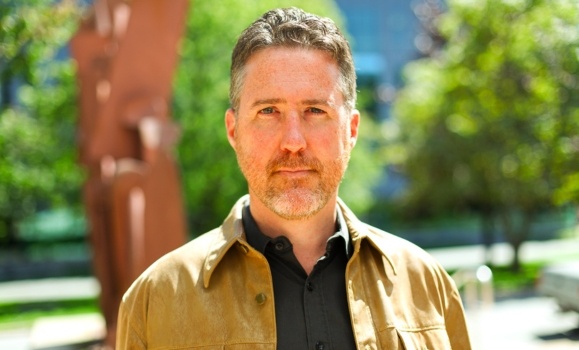News
» Go to news mainProfessor Rob Currie Part of CPIJ Team That Receives Governor General’s Innovation Award

The Canadian Partnership for International Justice (CPIJ) was named one of the recipients of the eighth annual Governor General’s Innovation Awards (GGIA) by the Rideau Hall Foundation on April 18, 2023. These awards recognize and celebrate exceptional and transformational Canadian innovations, which create a positive impact in Canada and inspire the next generation of innovators.
Led by Professor Fannie Lafontaine, the CPIJ is a pan-Canadian partnership that brings together a team of 25 researchers from 8 universities, 4 university-based legal clinics and 4 non-governmental organizations, to strengthen access to justice for victims of international crimes.
Schulich School of Law Professor Rob Currie is a member of the award-winning team as a co-investigator on the grant that supports the CPIJ’s work. Over the years of its operation, he has produced scholarly work and popular media pieces on various topics relating to transnational crime, including human trafficking, cybercrime and cross-border cooperation between states.
He also founded The Halifax Colloquium, a law reform effort designed to improve Canada’s laws on the extradition of individuals from Canada to face prosecution in foreign states. The Colloquium produced “The Halifax Proposals,” a detailed law reform agenda, and recently Professor Currie testified before a Parliamentary committee on this topic.
“Winning this award is a great honour, but more importantly it is a way of helping to bring attention to serious issues that are vitally in need of attention,” says Professor Currie. “Like everything else in the world, crime is becoming internationalized, but much of both international and Canadian law does not have all of the tools required to deal with it. Justice for victims of international crime, enforcement against transnational crime and the protection of human rights require the hard work of scholarship and awareness-raising. Being part of this group has been an amazing experience.”
The CPIJ innovates by building multidisciplinary and cross-sectoral bridges between research and practice through legal clinics, recognized as social innovations, where a multinational cohort of more than 600 students are equipped with knowledge, practical training and a diversified network, and embodies the future of international justice.
The production of more than 200 scholarly texts that have been disseminated in several languages, including to civil society through media articles and blogs, interviews and events, allowed CPIJ to increase knowledge on international justice and to raise awareness about the fight against impunity.
Everywhere, in specialized forums or close to the fieldworkers, CPIJ has brought together, trained, informed, connected and sensitized thousands of people. The team’s numerous interventions on the situation in Ukraine are striking and recent examples, as is its work on colonial genocide and the recognition of a crime of ecocide.
In addition to contributing to the defence of human rights and the construction of a just and inclusive society, CPIJ changed the way research is done.
The award will enable CPIJ to continue and promote its research and training activities to support the fight against impunity for international crimes.
Recent News
- Meet Caleb MacDonald, Class of 2024
- Professor Emeritus Wayne MacKay ft in "'Videos, accusations posted online after Halifax teen's homicide raise legal concerns"
- The Schulich School of Law ft in "Top 10 Law Schools in Canada in 2024"
- Professor Emeritus Wayne MacKay ft in "'Enough is enough': N.S. Teachers Union prepared to strike if no progress on 'priority areas'"
- Professor Emeritus Wayne MacKay ft in "Livestreamed transphobic assault in Hamilton shows why Canada must be tougher on hate, expert says"
- Assistant Professor Suzie Dunn ft in "'Ground is shifting' for social media giants, says federal justice minister pushing Online Harms Act"
- Professor Emeritus Wayne MacKay ft in "Maritime Noon Phone‑In: Three experts discuss and answer questions about proposed legislation in NB called the Compassionate Intervention Act"
- Professor Emeritus Wayne MacKay ft in "Social media giants face scrutiny for cyberbullying. How does this affect Islanders?"
